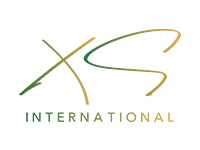
Tracing your Ancestors: The Roots of the Slave Trade
By Laura Blake
During the 15th Century, Africa entered into a unique and decimating relationship with Europe that led to the country’s depopulation yet vastly contributed to the wealth and development of Europe. The European traders identified a valuable commodity, one that would keep them in business up until the end of the 19th Century. The trans-Atlantic slave trade had begun.
Surprisingly, there was already a long history of African natives being bartered or stolen into slavery long before European and American slave traders began to deal in human lives. Africans had been transported to the Islamic regions for at least 600 years, with many tribes and kingdoms operating on chattel slavery, debt bondage, forced labour and serfdom. The trans-Atlantic trade began when Portugal, quickly followed by other European and American colonies, finally expanded their trade operations overseas and reached the western coasts of Africa. The Portuguese first began to kidnap natives and take them back to Europe, before the ‘Trade Triangle’ was developed in 1450. European traders would either kidnap or exchange natives for goods, before taking them on the perilous and often fatal journey across the Atlantic to the established colonies in the Americas. Here, they were forced to work in the plantations on the Caribbean Islands and in South America, producing luxury items such as sugar, coffee, tobacco, rice and rum, which were then transported back to Europe to be enjoyed and sold by members of high society.
Historians still debate exactly how many Africans were forcibly transported across the Atlantic, although the most comprehensive database comprised to date, produced in the late 1990s, puts the figure around 11 million people. Of those, roughly 9.6 million survived the journey. The slave trade was at its most widespread during the 17th and 18th Centuries; the first Africans imported to the English colonies were known as ‘indentured servants’- but by the middle of the 17th Century, they and their offspring were considered the legal property of their owners, and sold or traded as units of labour.
Slavery was finally abolished by Britain in 1807, though it was not until 1833 that slavery was completely eradicated throughout the British Empire. Global abolishment was a slow and gradual process; the United States passed the 13th Amendment in 1865, effectively making the possession of slaves’ illegal, whilst Brazil did not pass such laws until 1888. Some freed slaves made their way back to Africa, though many of them stayed at the plantations or found work on sharecropping farms.
Thousands of families across Europe and America have roots in slavery. As free slaves began to move across the continents, they settled down and established family groups, creating generations of ethnic diversity. New names, new religions and new languages were adopted. Frustratingly, it is incredibly difficult for 21st Century families to unearth their ancestry; before 1870, census records rarely noted slaves by their first and last names, and even then, slaves were often given their master’s surname. Tracing your past can mean a long and difficult search, trawling through archives in hopes of stumbling across a name or a date. Luckily, there are a number of companies and services that are dedicated to helping individuals discover the secrets of the past.
From searching the records on your behalf to taking you on a ‘Roots’ tour of Africa, there are many ways to come closer to knowing who you are. Many Americans are surprised to find they have European origins; whilst slaves considered to be ‘good stock’ (strong and relatively healthy) were sold as ‘breeders’, it was also common practice for plantation owners to copulate with their slaves in order to boost population. Thousands of families in the UK can trace their heritage back to the Caribbean Islands; from the 1940s onwards, immigrants arrived in Britain for work, bringing with them their slave ancestry.
Tracing your heritage back to Africa is extremely difficult, but not impossible. Very few records indicate the African ethnic group or tribe name to help you cross the vast Atlantic divide; auction notices rarely five the names of the slaves, their sellers or their purchases. Shipping records do not give the names or origins of slaves, and many of them were transported to the coast from tribes deep in the heart of Africa. It is however, possible that receipts may indicate where slaves originated from or identify the ship, allowing you to trace the ship’s journey to and from Africa, whilst slave registers may sometime describe physical characteristics such as tribal tattoos. It has even been suggested that DNA analysis may help you reconnect with Africa, though this method does has its weaknesses – it can only highlight direct paternal and maternal DNA and misses the genetic material of other ancestors.
A period of history that is now looked upon with remorse, the trans-Atlantic slave trade decimated lives beyond belief for the good of commerce and wealth. However, it did spawn generations of individuals with roots in beautifully diverse ethnic cultures, and tracing your ancestors across the centuries will be an incredibly moving and profound experience.
Share this article:



















